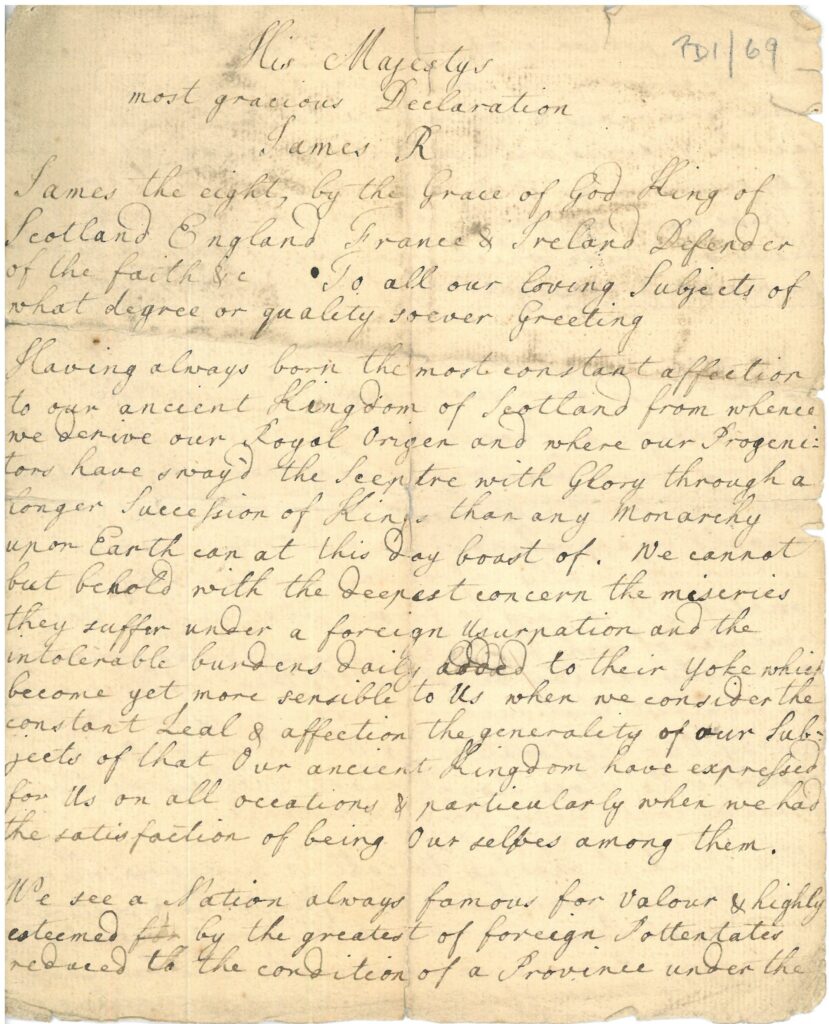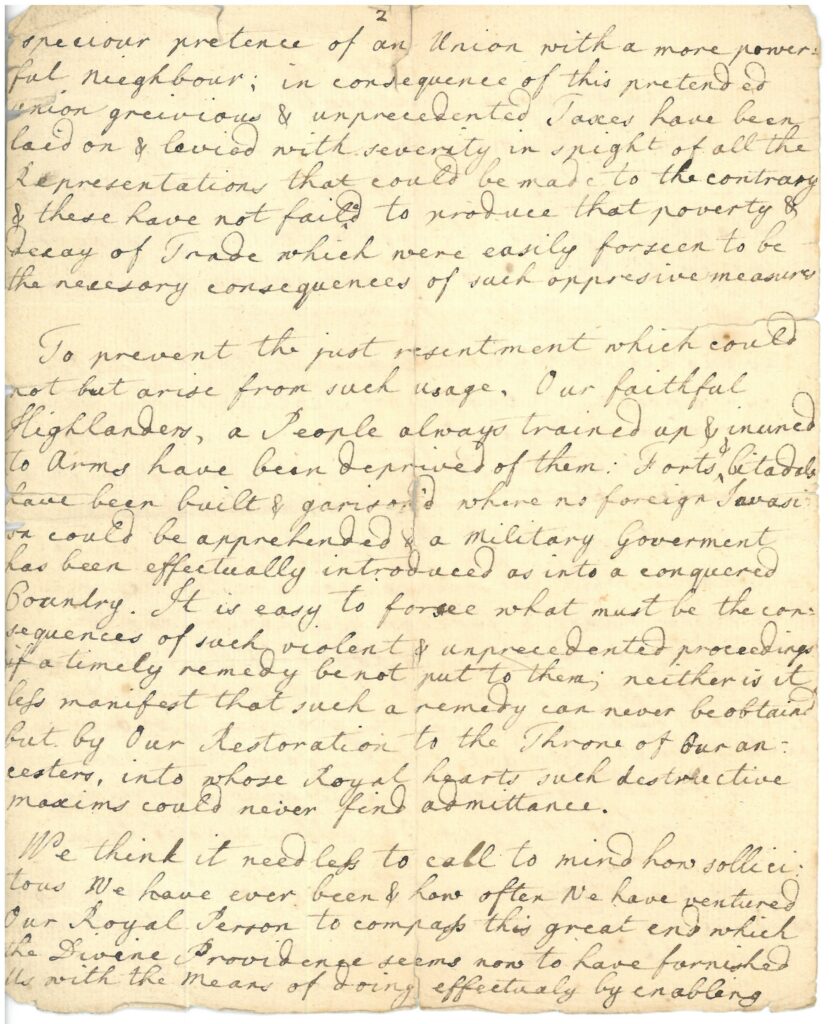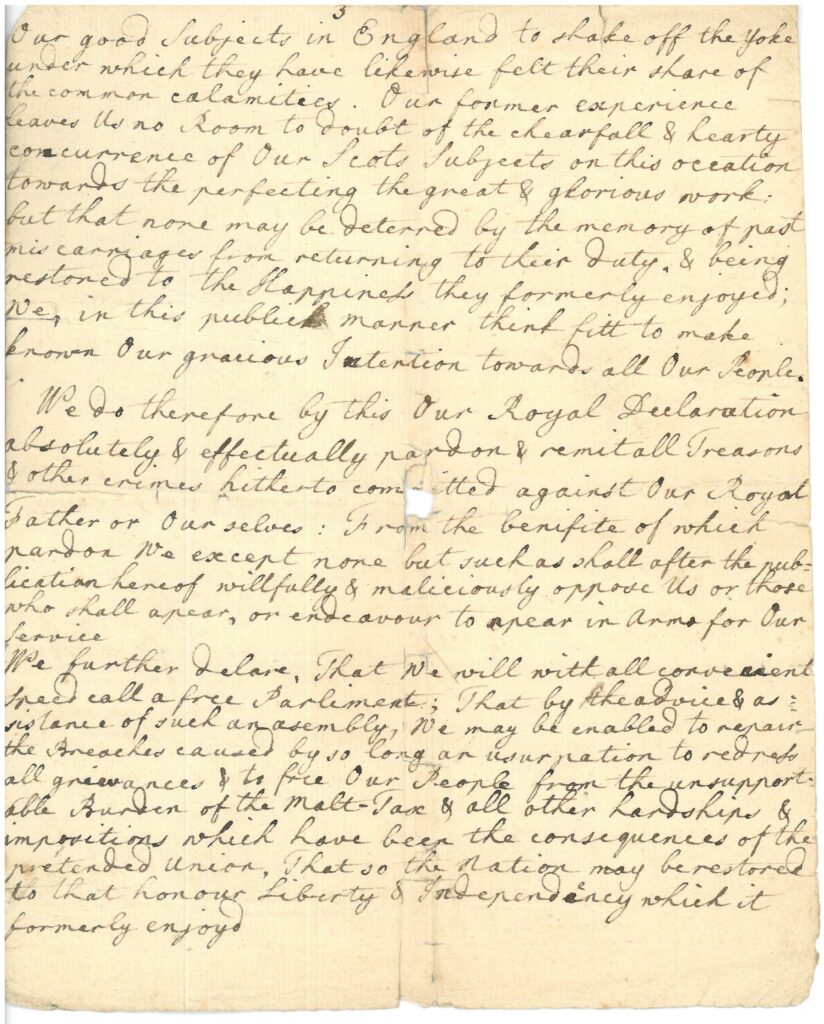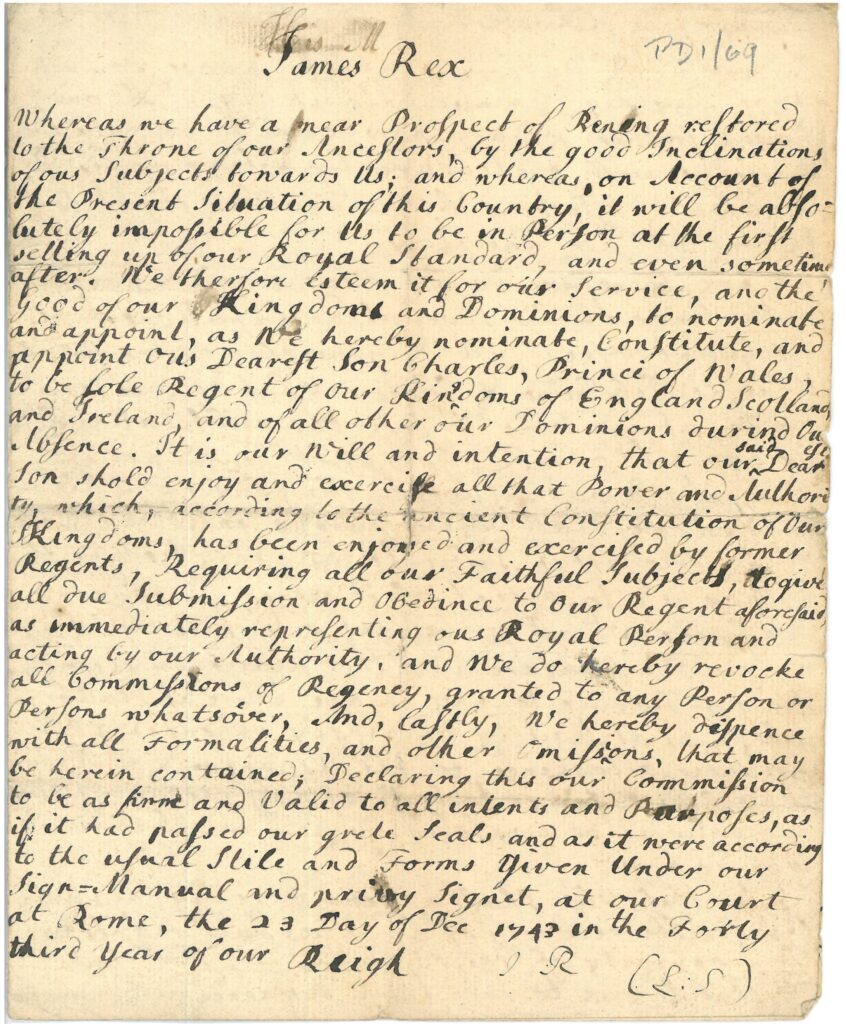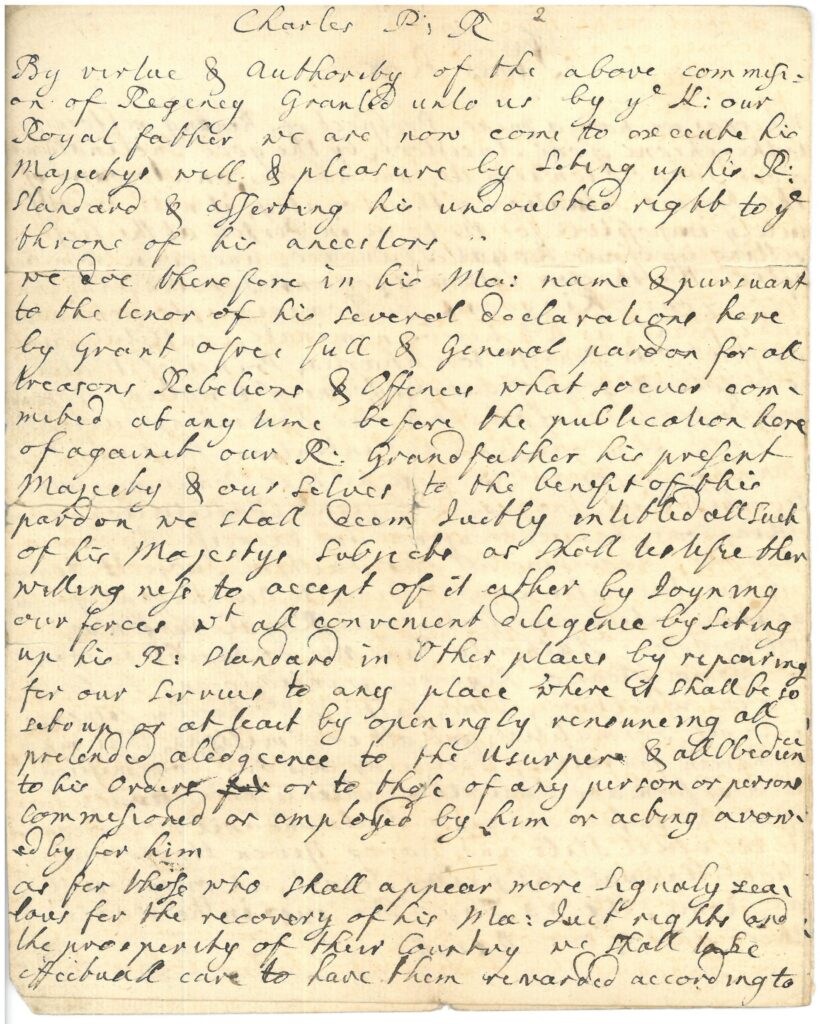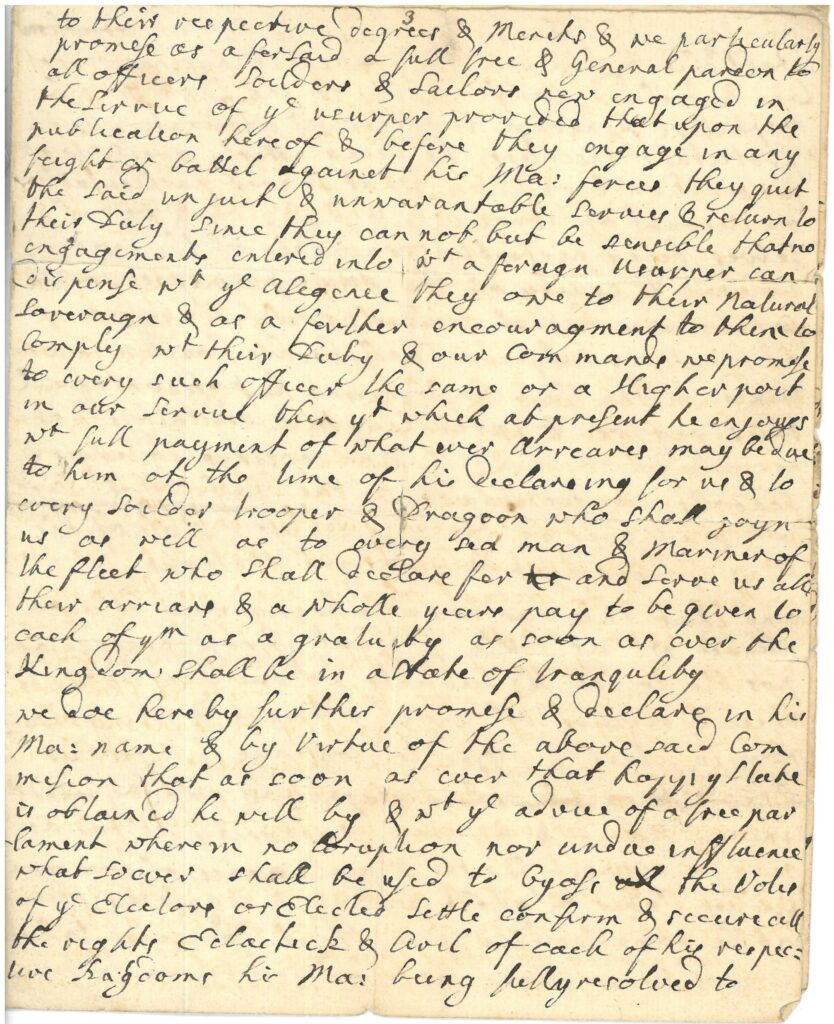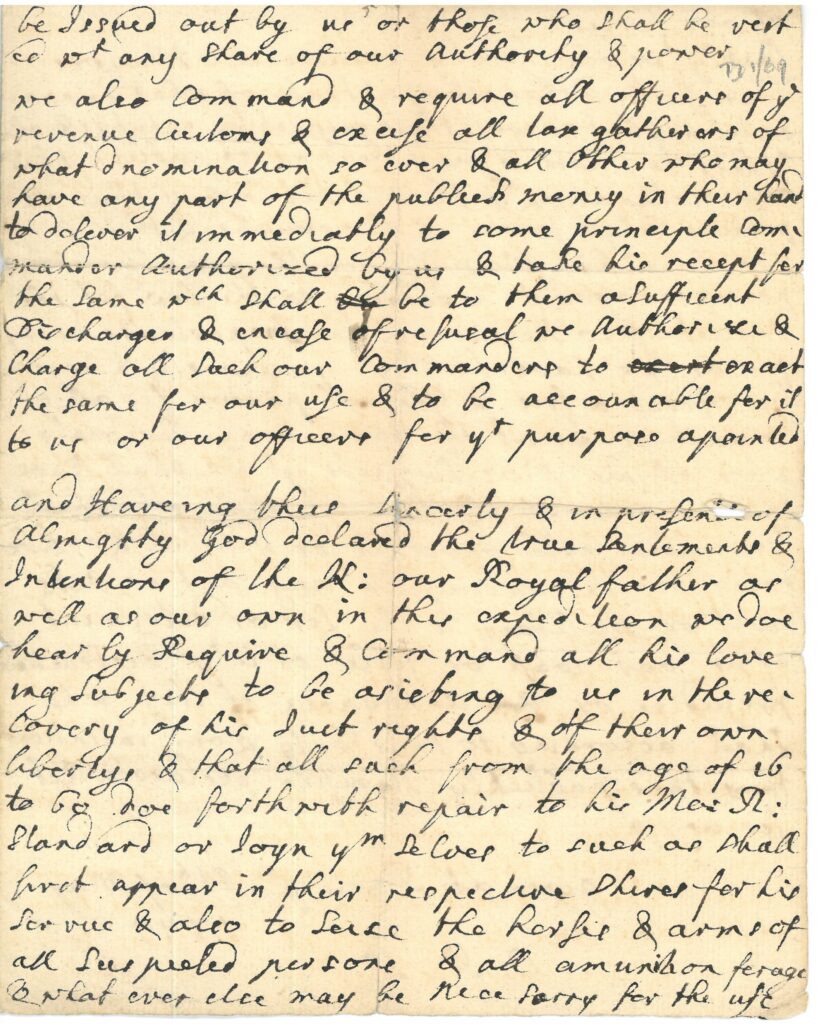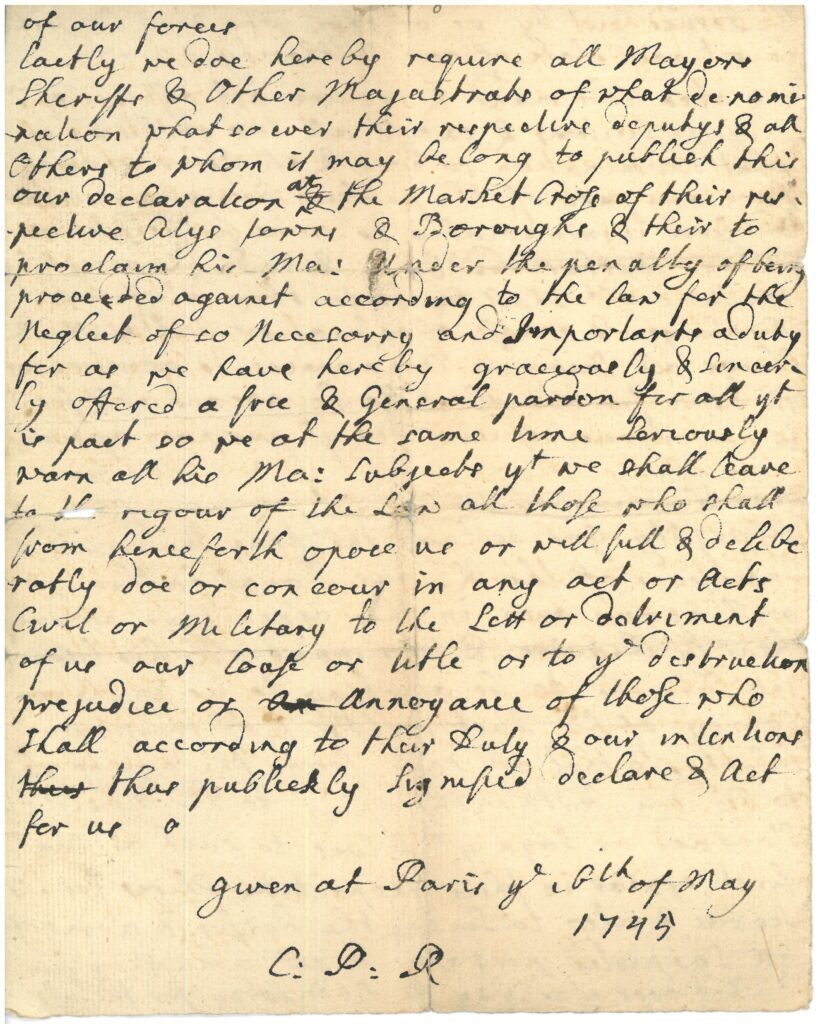By 1743, the exiled Prince Charles Edward and his father were working to gain widespread, international support for their claim to the thrones of Scotland, England and Ireland. Our Document of the Month of August demonstrates the diplomatic efforts made to garner the support and loyalty of those ‘faithful Highlanders’ who would fight for the Stuart cause in that ill-fated rebellion of 1745.
The documents are handwritten copies of proclamations issued by Prince Charles Edward and his father. Their provenance is unknown beyond the intriguing fact that they were discovered in an attic. Given the importance of the contents of the proclamations, there were most likely a number of copies in circulation at the time, and would have been widely distributed throughout the kingdom.
The entire document is comprised of three royal declarations and employs much of, what was at the time, standard rhetoric and tactics to appeal to the Scots. This includes deep and repeated commiserations of ‘the miseries they suffer under a foreign usurpation and the intolerable burdens’. The ‘grievous and unprecedented taxes [which] have been laid on and levied with severity’, and which ‘have not failed to produce that poverty of decay of Trade’, as well as the fact that ‘Our Faithful Highlanders, a People always trained up and insured to arms have been deprived of them’ are specifically mentioned and drawn attention to. There is also an effort to flatter the Scots- ‘a Nation always famous for valour and highly esteemed by the greatest of foreign Pottentates’ and appeal to their historical distaste at being ‘reduced to the condition of a Province under… a more powerful neighbour’.
There are also repeated efforts to undermine George II’s rule as a ‘usurpation’ and a ‘yoke’ upon ‘our good subjects’, alongside references to the longevity of the ‘ancient’ Stuart rule, whose ruling dynasty could be traced back farther than ‘any monarchy upon Earth can at this day boast of’ which serve in the document to strengthen the Stuart claim and diminish the authority of their rivals. The very use of royal declarations to assert themselves acts to further reinforce their claims and legitimacy, and the written intention to ‘call a free Parliament’, only strengthens this.
Beyond pandering to the bruised egos of the suffering Scots, James promises to ‘absolutely and effectually pardon and remit all Treasons and other crimes hitherto committed against Our Royal Father or Ourselves’. Tellingly, however, this mercy is only promised to those who ‘endeavour to appear in arms for Our service’.
The second proclamation, dated 23rd December 1743, formally declared ‘Charles, Prince of Wales’, who would later be immortalised as Bonnie Prince Charlie as ‘sole Regent of our Kingdoms of England, Scotland and Ireland and of all other our Dominions’. Note the positioning of England first in this list of titles.
The third declaration, dated 6th May 1745, was issued by Charlie himself, and references the 1743 declaration of his father, drawing legitimacy from it and from him. This declaration presents itself as the beginning of the ‘execut[ion] [of] his majesty’s will and pleasure. He issues declarations in relation to trade as well as justice- reiterating his father’s ‘free and general pardon to all officers and sailors… engaged in the service of the usurper’, and encourages religious tolerance between the churches of England, Scotland and Ireland.
By demonstrating himself to be undertaking the rightful duties of a regent and indeed a ruler, Charlie is encouraging a sense of confidence among his supporters. Given the fact that he remained in Paris when issuing this declaration, these performances of the acts of governance were perhaps even more vital in presenting the Stuart dynasty as present in the kingdom.
Central in all three declarations is the assertion that ‘hardships’ brought on by ‘the pretended union’ will be reversed, ‘that so the nation may be restored to that honour Liberty and Independency which it formerly enjoyed’.
These documents are just a few of a number of records concerning the Jacobite uprising which are held at the Council Archives and which can provide insight into this tumultuous period in Scottish history, and into the circulation of texts and information during this time.
